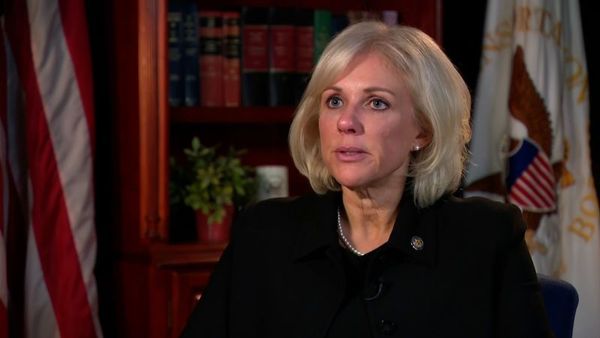
The head of the National Transportation Safety Board (NTSB), Jennifer Homendy, issued a stern warning about the dangerous “culture of silence” surrounding mental health in the aviation industry that is jeopardizing safety. Speaking at a summit on the topic, Homendy emphasized that employees should never have to hesitate before seeking help for their mental health concerns, but unfortunately, current Federal Aviation Administration (FAA) rules create barriers and fear that prevent individuals from reporting their struggles.
“In aviation, you are essentially penalized for following the rules and disclosing your mental health issues,” Homendy asserted. Acknowledging that change is needed, the FAA recently announced the formation of a new rulemaking committee to address these disclosure rules. Homendy expressed hope after positive discussions she had with FAA administrator Michael Whitaker.
During the summit, former NTSB Vice Chairman Bruce Landsberg shared his personal experience battling mental health issues following the tragic loss of his son, who served in the military and died due to post-traumatic stress disorder (PTSD). Landsberg, a pilot himself, emphasized the significance of his own struggles.
“Following my son’s death, I grounded myself from flying voluntarily,” Landsberg shared. “Although I did not report this to the FAA, I wanted to ensure I was ready to fly again and had processed my grief. It never completely goes away.” To ensure his well-being, Landsberg first flew with an experienced pilot before resuming his regular flying routine.
The summit also featured emotional testimonies from families affected by pilot mental health issues. Dr. Anne Suh, a physician from Chicago, recounted the tragic loss of her son, John Hauser, a student pilot who died by suicide in October 2021. Reading from a letter he wrote before his death, she shared his struggle with seeking help while pursuing his aviation dreams.
“He wrote, ‘I want to seek help more than anything. I really do. I want to get better. But if I try, I will have to give up on aviation. And frankly, I’d rather not be here than to do that. So, here I am,’” Suh tearfully testified.
Suh emphasized that improving the system for pilots to receive mental health support will lead to safer skies for everyone. She and her husband are planning to meet with members of Congress to address the urgent need for changes in pilot mental health regulations.
The urgency for reform in the aviation industry’s approach to mental health became prominent when off-duty pilot Joseph Emerson attempted to crash an Alaska Airlines flight while in the cockpit. Emerson admitted to police investigators that he had not slept for 40 hours, experimented with drugs, and had been grappling with depression for an extended period. Fortunately, the crew intervened, preventing a disaster.
As this story continues to develop, it serves as a reminder that prioritizing mental health support in the aviation industry is crucial for the safety of passengers and crew members alike. The NTSB’s call for change and the FAA’s commitment to addressing the disclosure rules are steps towards a safer and more compassionate work environment.
If you or someone you know is struggling with suicidal thoughts or mental health issues, help is available:
- In the US: Call or text 988, the Suicide & Crisis Lifeline.
- Globally: The International Association for Suicide Prevention and Befrienders Worldwide have contact information for crisis centers around the world.
Remember, reaching out for help is a sign of strength and courage. You are not alone.




